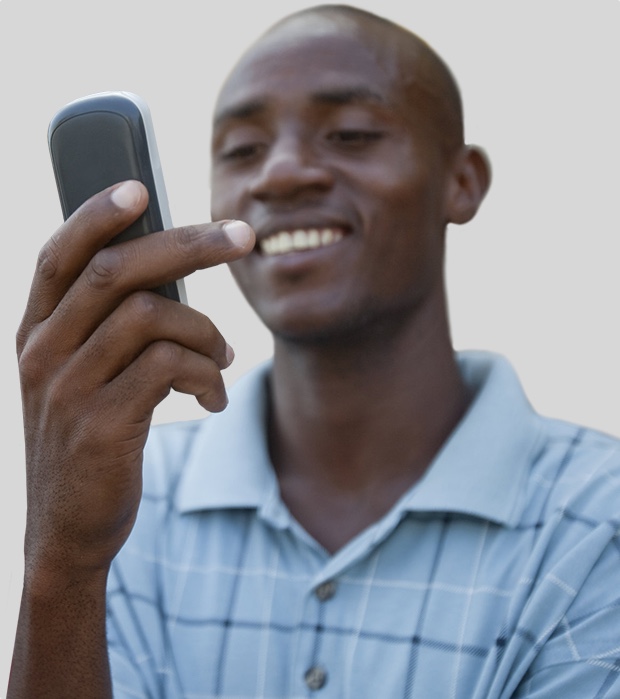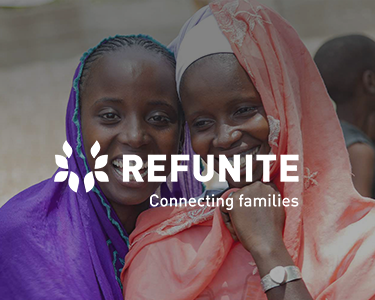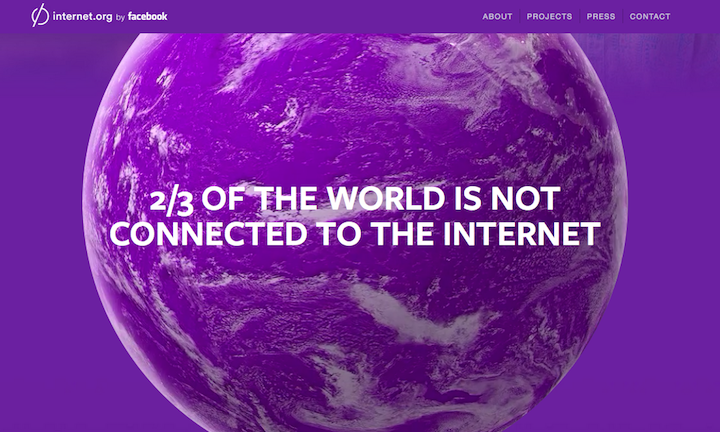
Facebook and Free Basics ensures free access to m.refunite.org across Africa and the Middle East
Thanks to Free Basics by Facebook, millions of mobile subscribers across Africa and the Middle East now have free access to REFUNITE’s family reconnection platform. Ida Jeng of REFUNITE reflects on REFUNITE’s newest technology partnership.
2016 was off to a hectic start and had our team in Nairobi burning midnight oil to keep up with our new, global partnership with Free Basics by Facebook. After all — and as a nonprofit organization with only 26 team members — how often do you get an opportunity to deploy your mobile service to eight new countries within a couple of weeks? That was more or less how 2016 started: with a bang, head scratching and the opportunity for massive scale.

New year, new countries
In addition to our lead technology partner, Ericsson, we now also work with Free Basics, an initiative by Facebook, Ericsson and partners, that aims to provide free access to lifesaving Internet services to a billion people globally. Due to this new collaboration, which took shape last year, displaced families with access to smartphones or feature phones can now search for their missing loved ones free of charge via m.refunite.org. The service is live in Iraq, Liberia, South Africa, Democratic Republic of the Congo, Kenya, Rwanda, Niger, and Tanzania.
Up until now, and thanks to Ericsson and partnering mobile companies, our family reconnection platform has been accessible for free through USSD, SMS and hotlines in selected countries, such as Somalia, Jordan, Turkey, Iraq, Kenya, and Democratic Republic of the Congo. These channels will continue to exist and are key in our efforts to reconnect families.
The current version of our mobile-search tool is SMS-based and inspired by frugal innovation: if the mobile tool is to work for families in refugee camps, we have to strip it of all unnecessary features to ensure that it works from cheap, feature phones without Internet-access.
Realizing that smartphones are on the rise globally, even in refugee camps, slum areas and conflict zones, it has been our goal to create free access to our family reconnection platform through smartphones as well. According to research by Strategy Analytics, smartphone penetration in Africa has reached over 60%, similar to the Middle East, where some countries are expected to reach 80-90% penetration this year.
Combined, and by creating access to our platform from both smartphones, hotlines, USSD and SMS, we will be able to serve a diverse group of families.
Deciding to partner with Facebook
At REFUNITE, we believe that everyone has the right to know where their family is. Through the years, we have partnered with a wide range of organizations who support our mission: from local refugee groups in conflict zones to leading mobile companies. As a technology organization that was established to serve the world’s displaced people, we continue to believe that this approach — partnering with refugees, NGOs and private-sector companies alike — enables us to reconnect families more rapidly.
This approach does not suit all, and just like Facebook is the subject of heated debates, we, too, have passionate discussions internally about who to partner with. Looking across our team, you’ll find no less than 12 nationalities and staff from different backgrounds: from Somali and Congolese refugees; to coders who spend their free time trolling the Internet to partake in debates on net neutrality; to management-consultant types and staunch human rights advocates. In short: it was both with excitement — and hesitation — when we asked colleagues to close their laptops in order to make a team announcement: Facebook.wants.to.work.with.us.
Responding to the biggest displacement crisis since World War II
The opportunity to work with Free Basics by Facebook comes at a time when more than 60 million people have been displaced globally. When families flee, they often lose track of their loved ones. Just like the rest of the world, we are zoomed in on the Syrian refugee crisis these days: Refugee children washing up on Lesbos in Greece; displaced families crossing into Iraq; Tents popping up in snow-covered Scandinavia. Other conflicts have our attention too: Amnesty claims evidence of mass graves in Burundi. Countries like Somalia and the Democratic Republic of the Congo account for huge transferences of separated families. South Sudan, the world’s newest country and a global symbol of hope, is deteriorating; against a backdrop of civil war.
Needless to say, it was not difficult for us to make a fast decision when Facebook offered a collaboration. If we are to reconnect families living off the grid, and families who are unable to pay for data, it only makes sense to partner with Facebook.
Campaign highlights
The partnership with Free Basics is still in its early stages, but it’s reassuring to know that more than 19 million mobile subscribers globally now have free access to important information. More countries will be added during 2016. Our current user base is at 470,000 and we’re already seeing growth in selected countries.
- In Iraq — home to more than 288,035 refugees and almost 4 million internally displaced people (IDPs) — more than 10,000 people registered onto m.refunite.org via Korek, a national mobile operator, since November.
- In South Africa, 407 people registered via the mobile operator Cell C, compared to only 53 registrations prior to the launch.
- In Liberia, there has been a spike of 1,120 registrations made through the mobile company Cellcom since the launch of our service.
- In the Democratic Republic of the Congo, 265 people have registered via Airtel and Tigo since our launch.
What this new partnership means for product
From an organizational design perspective, we’ve had to rejig priorities to keep up with Facebook’s expansion plans. We currently don’t have staff on-the-ground in all countries, and want to keep our team small and agile. A digital approach, mixing SMS campaigns with push-notifications and strong on-the-ground partnerships, have proven to be the most efficient way for us to reconnect families.
Our product development team is currently working hard to redesign and optimize m.refunite.org. Facebook has created an online simulator that lets you test your service in all countries. After having toyed around with their simulator, it was pretty obvious that we need to focus on product optimization to be able to serve a diverse group of displaced families. Wireframes are on their way and will be put into production soon. We want families to be able to register fast, and we want the flow to be easy, intuitive, and regionally localized, while minimizing the load time.
Localizing m.refunite.org to better serve families
Our translation team will localize the services to specific ethnicities; both language and registration flow. To ensure that we are able to communicate with families in various languages, we have partnered with Global Voices, a network of translators and bloggers. We are also increasingly relying on our own agents in camps, staff members who are refugees themselves, to co-create language and translations for product.
Our family reconnection platform is currently available in eight languages: Arabic, Somali, Amharic, Swahili, Congolese Swahili, French, Amharic and Sudanese. During 2016, it is our intention to add the following languages: Pashto, Urdu, Tagalog and Portuguese.
Our data specialists will be tracking registrations through our real-time dashboard and diving into possible reconnections. Our user acquisition team is currently looking into ways to promote the service digitally and on-the-ground.
…oh and: we’re hiring!
We cannot do this alone. If you’re up for the challenge and think you have what it takes to reconnect some of the most disconnected people in the world, then send an unsolicited resumé to: jobs@refunite.org. We’re hiring growth hackers, designers and technologists.



